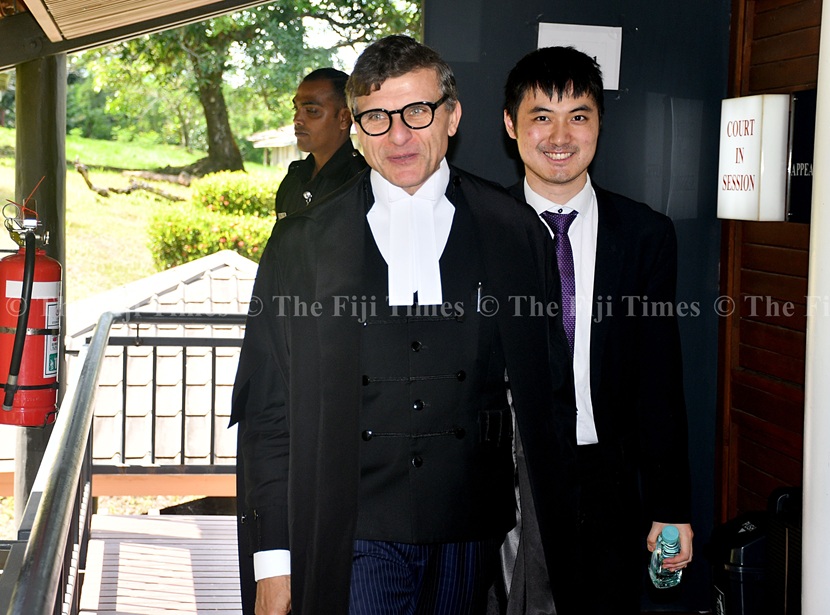The Supreme Court of Fiji has been cautioned against giving precedence to one provision of the 2013 Constitution at the expense of another when both provisions are in the same document.
Appearing for the Fiji Law Society, Australian barrister Arthur Moses said the court did not have the power to rewrite the Constitution and must not “accept an invitation” to do so.
He said this in response to Justice Isikeli Mataitoga, who referred to the principles of constitutional interpretation in Section 3 of the Constitution and said people’s sovereignty should be considered when there were two conflicting interpretations.
“You are absolutely right, Chief Justice, but that provision for the reasons that I referred to yesterday by reference to the authorities, does not give the court, or any view of the authorities, the power to ignore a provision of the Constitution, because they are both contained in the same document,” Mr Moses said.
“And the problem becomes that the court is being placed into a position where it basically is rewriting the Constitution, and it doesn’t have the power to do that, and it should not accept an invitation to fall into error to do that.
“It draws the court into a political controversy, undermines, potentially, its authority.”
He warned the bench that it was not within the court’s remit to relax the Constitution’s strict amendment rules, which require 75 per cent of Parliament and a three quarters majority in a referendum.
“Change 75 per cent to two-thirds — you are radically changing it from what it is, and that is not your role as a court.
“The most authentic constitutional mechanism for self-determination is a referendum, and that’s where this matter starts and finishes.
“As to what those figures should be is not a matter for this court, no matter how wise it is, to pluck figures out of the air and say, we think that is appropriate because you don’t have the authority to do that.”



